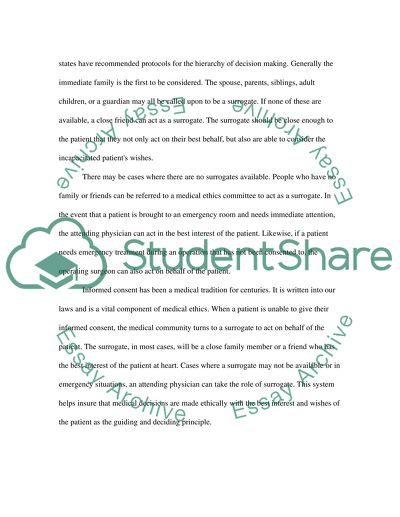Surrogate Decision Making Essay Example | Topics and Well Written Essays - 500 words. https://studentshare.org/health-sciences-medicine/1528412-surrogate-decision-making
Surrogate Decision Making Essay Example | Topics and Well Written Essays - 500 Words. https://studentshare.org/health-sciences-medicine/1528412-surrogate-decision-making.


